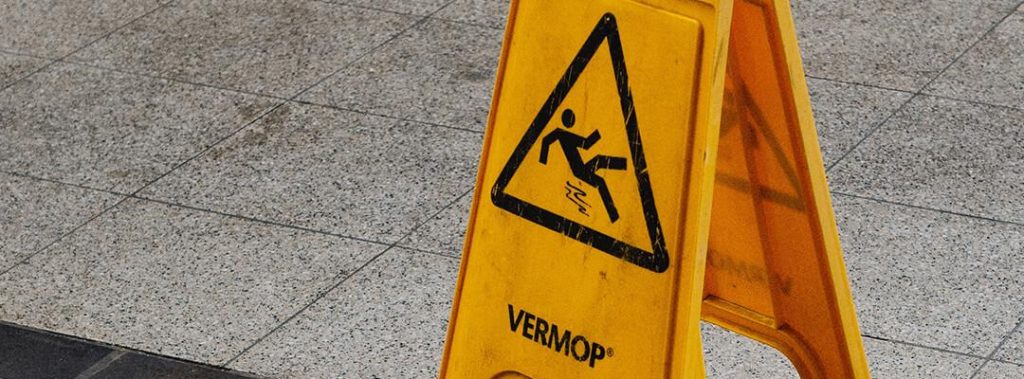DESERVE FOR YOUR INJURIES
Focus on your health and recovery, while we focus on the rest.

Wet floor accidents are common in various environments, including workplaces, public spaces, and commercial properties. These incidents can lead to severe injuries, prompting the injured party to explore legal remedies such as worker’s compensation claims and personal injury lawsuits. Understanding the legal landscape can help victims determine the best course of action for their specific situation.
Worker’s compensation provides benefits to employees who sustain injuries at work, irrespective of fault. If you slip and fall on a wet floor while performing your job duties, you are generally eligible for worker’s compensation. This coverage includes medical bills, a portion of your lost wages, and costs associated with rehabilitation. Worker’s compensation is designed to provide quick and efficient relief to injured workers, allowing them to recover and return to work without the burden of lengthy legal disputes.
However, worker’s compensation does not cover non-economic damages such as pain and suffering, and it typically bars employees from suing their employers directly for negligence.
A personal injury lawsuit may be appropriate if your wet floor accident was caused by the negligence of another party, such as a third-party cleaning company failing to properly mark a wet area or a property owner neglecting maintenance. In such cases, a lawsuit can be filed to seek damages beyond what worker’s compensation provides, including compensation for pain and suffering, emotional distress, and other impacts on your quality of life.
Pursuing a personal injury claim involves proving that the defendant had a duty to maintain a safe environment, breached that duty by allowing the hazardous condition to persist, and caused your accident and resulting injuries. This process often requires gathering evidence such as surveillance footage, witness statements, and maintenance records.
Determining whether to file a worker’s compensation claim, pursue a personal injury lawsuit, or both depends on the circumstances of the accident. Employees injured on the job should first consider worker’s compensation for immediate benefits. However, if a third party’s negligence contributed to the accident, filing a personal injury lawsuit might also be an option.
Consulting with a legal professional who understands both personal injury and worker’s compensation law is crucial. An experienced attorney can help navigate the complexities of each option and advise on the best strategy to maximize the compensation you may be entitled to.
Navigating the aftermath of a wet floor accident requires understanding your rights and the distinctions between worker’s compensation and personal injury claims. Whether seeking swift support through worker’s compensation or pursuing broader damages through a personal injury lawsuit, knowing your legal options is the first step towards securing the necessary remedies for your recovery.
Slips, trips, and falls are some of the most common workplace injuries, and they can occur in any type of work environment. Wet floors are a significant hazard that can lead to these types of injuries, causing employees to suffer from broken bones, head trauma, and other serious injuries. Employers have a responsibility to provide a safe working environment for their employees, and this includes taking measures to prevent wet floor injuries.
Wet floors can be caused by a variety of factors, including spills, leaks, and mopping. When a liquid is spilled on the floor, it creates a slippery surface that can be difficult to navigate. Additionally, if there is a leak in a pipe or other equipment, it can cause water to pool on the floor, creating a potential slip and fall hazard. Even cleaning floors with water can make them slippery and dangerous.
Wet floor accidents can result in a wide range of injuries, ranging from minor cuts and bruises to more serious injuries such as broken bones and head trauma. In some cases, wet floor accidents can even result in permanent disabilities. The severity of the injury will depend on various factors, such as the age and physical condition of the employee, the speed and angle of the fall, and the surface of the floor.
According to the National Floor Safety Institute (NFSI), falls on wet floors account for more than $2 billion in workers’ compensation claims each year.
Employers have a responsibility to take measures to prevent wet floor injuries, such as proper cleaning and maintenance of floors, addressing spills and leaks promptly, and providing employees with non-slip shoes. If an employee is injured due to a wet floor accident, they may be able to pursue legal action to recover damages. By prioritizing employee safety, employers can help prevent wet floor accidents and protect their employees from injury.
Some effective ways to prevent wet floor injuries include:
If an employee is injured due to a wet floor accident in the workplace, they may be able to pursue legal action against their employer. In some cases, it may be possible to recover compensation for medical expenses, lost wages, and other damages. There may be both a personal injury component and a workers compensation component. An experienced personal injury attorney can help employees understand their rights and options in this situation.